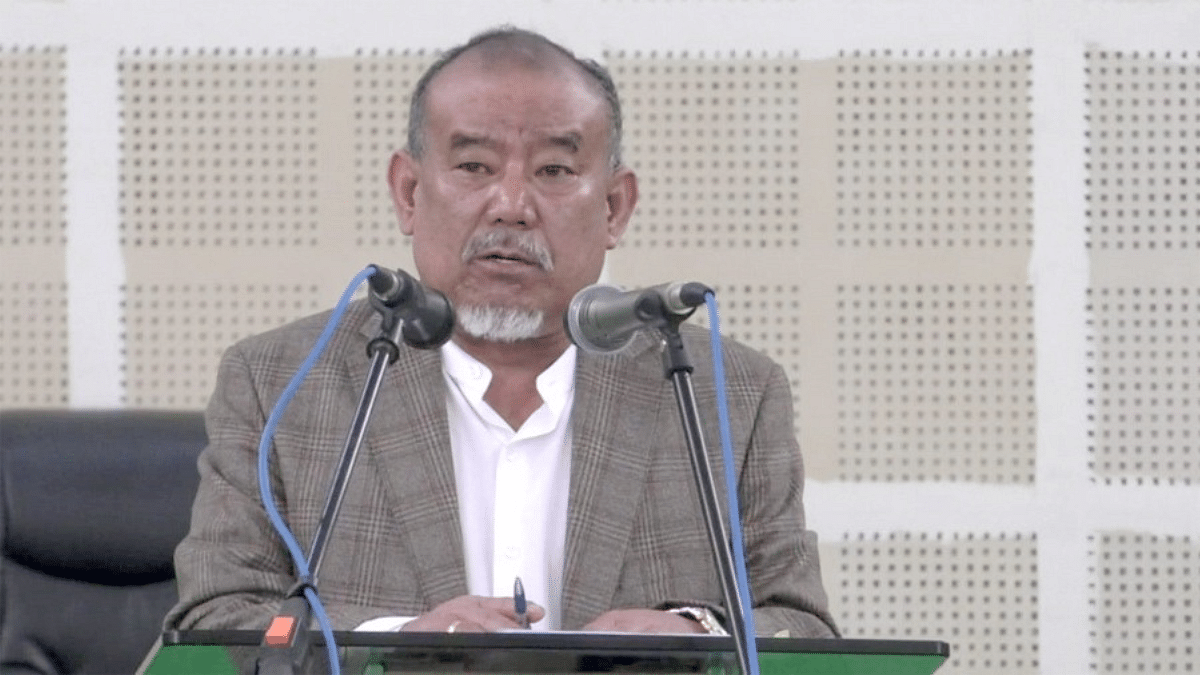Guwahati/Dimapur: The leader of a Naga insurgent group was Sunday “impeached”, or charged with “incompetency” and alleged financial misconduct within the organisation.
The general secretary of the National Socialist Council of Nagaland-Neopao Konyak/Kitovi (NSCN/NK) — also known as GPRN/NSCN — N. Kitovi Zhimomi, was sidelined over internal differences and violation of party rules, sources in the NSCN camp confirmed to ThePrint.
The 66-year-old leader also headed the Naga National Political Groups (NNPG) — an umbrella body of seven Naga insurgent groups that are also party to the peace talks with the central government — apart from the National Socialist Council of Nagalim-Isak Muivah (NSCN-IM).
Though an official announcement is awaited, sources in the camp revealed the action against Zhimomi was taken in an emergency “National Assembly” at the Tatar Hoho Hall, the council and central headquarters of the organisation in Khehoyi, about 35 km from Dimapur.
Before taking the decision, leaders of the GPRN/NSCN had approached its president Neokpao Konyak to take over, but he refused, sources told ThePrint.
Further, the coordinator of the working committee of NNPG, Alezo Venuh, was unanimously elected as the group’s new general secretary. Venuh confirmed the development to ThePrint.
The reasons for Zhimomi’s impeachment have been attributed to internal differences that had been brewing in the organisation for almost a year. There was discontentment among members, and complaints against Zhimomi for alleged misconduct and mismanagement of financial resources. Members also pointed to his “dictatorial” mode of functioning.
Last February, one of the group’s important functionaries, Hokato Vusshe, had shifted to the Khango Konyak-led NSCN/GPRN(K) faction, creating a dent in the group.
With Zhimomi getting sidelined in his own organisation, there is also speculation about who will lead the NNPG. Questions have also been raised about the future of the ongoing talks with the central government.
Security analysts said the development has hurt NNPG’s edge in the discussions with the Centre. It has also cast a shadow on the unity among different groups in the umbrella body.
Speaking to ThePrint, former chairman of the Ceasefire Monitoring Group (CFMG), Nagaland, Lieutenant General Shokin Chauhan, said there was an urgent need by the central government to complete the peace process.
“The situation could be seen as an urgent appeal by the younger cadres to hasten and complete the peace process. Every time an insurgent organisation splits, it normally assumes a more virulent and radical form as in the case of the Maoists in Nepal,” he said.
It has been nearly three decades since talks between NSCN-IM and the government officially began in 1997, but the process remains stuck over the outfit’s demand for a separate Naga national flag and Constitution in recognition of Naga history of over 70 years.
Even as the Centre intends to bring various Naga groups together and sign one principal agreement, the fundamental differences between the NSCN-IM and the NNPG remain a hurdle towards achieving a “permanent solution”.
Comprising seven Naga insurgent outfits, the NNPG has reiterated its commitment to the “Agreed Position” signed between its working committee and the Centre on 17 November, 2017.
Besides other groups, the NNPG include the breakaway factions of the Khaplang-led NSCN (NSCN-K), the NSCN/NK that signed a ceasefire agreement with the Centre in April 2012, the NSCN-Reformation (NSCN-R) led by Wanting Naga, and a splinter group of the NSCN (Khango) led by Isaac Khango.
For almost two decades, Kitovi Zhimomi has led the NSCN-Unification (NSCN-U), now NSCN/NK, as its general secretary since its formation in 2007. It was established by members from two groups, the NSCN-IM and the NSCN-K, as a peace agreement between the factions.
(Edited by Tikli Basu)
Also read: 6 Eastern Nagaland districts abstain from voting over Centre’s delay on ‘frontier territory’ demand

